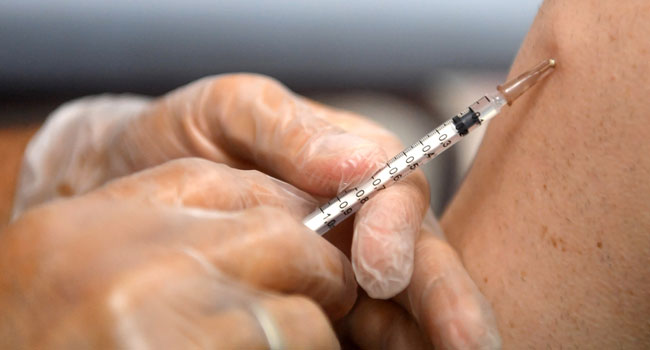In an effort to combat the spread of Mpox, the United States Agency for International Development (USAID) has provided Nigeria with 10,000 doses of the Jynneos vaccine.
At the official handover ceremony on Tuesday, Dr. Muyi Aina, Director General of the National Primary Health Care Development Agency (NPHCDA), announced that vaccine distribution would start immediately.
He indicated that priority would be given to states with the highest number of cases and to frontline healthcare workers. Dr. Aina expressed gratitude to the US government for their support and assured that the vaccines would be used effectively to help control the outbreak and save lives across Nigeria.
Nigeria is ramping up its surveillance efforts as Mpox cases reach 39, with no reported deaths. The Nigeria Centre for Disease Control (NCDC) confirmed these figures across 33 states and the Federal Capital Territory.
NCDC Director General Jide Idris disclosed this information at a press briefing on the declaration of Mpox as a public health emergency of international concern earlier this month.
Idris highlighted that the NCDC is enhancing its surveillance nationwide to quickly identify and address new cases. All port health services at the nation’s five international airports, 10 seaports, and 51 land/foot crossing points are on high alert. Additionally, several states, including Lagos, Enugu, Kano, Rivers, Cross-River, Akwa-Ibom, Adamawa, Taraba, and the Federal Capital Territory, are also under heightened scrutiny.
The World Health Organization (WHO) recently declared the Mpox surge in Africa a global public health emergency due to rising cases in the Democratic Republic of Congo (DRC) and its spread to neighboring countries. WHO convened a meeting of experts to assess the situation and advise Dr. Tedros Adhanom Ghebreyesus.
Dr. Tedros announced, “The emergency committee has advised that the situation constitutes a public health emergency of international concern. I have accepted this advice.” He emphasized the global concern and assured that WHO would coordinate the international response, collaborate closely with affected countries, and use its resources to prevent transmission, provide treatment, and save lives.
This declaration follows the African Union’s health watchdog’s decision to declare a public health emergency due to the escalating outbreak. Mpox, formerly known as monkeypox, has notably impacted the DRC, where the virus was first identified in humans in 1970. This year alone, over 14,000 cases and 524 deaths have been reported in the DRC, surpassing last year’s totals.




